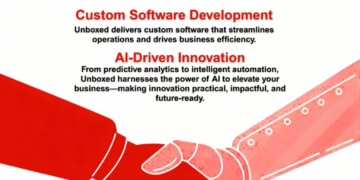Introduction
In recent years, Singapore has emerged as a global leader in corporate sustainability, championing innovative models that transform waste into wealth. This paradigm shift is not merely a trend but a strategic approach to achieving long-term environmental, social, and economic goals. Central to this transformation is the adoption of circular economy principles, where businesses reimagine their operations to minimize waste, maximize resource efficiency, and create value through sustainable practices.
Understanding the Circular Economy in Singapore
A circular economy is an alternative to the traditional linear model of “take, make, dispose.” It emphasizes the continual use of resources by creating closed-loop systems, reducing waste, and promoting the reuse and recycling of materials. In Singapore, this approach aligns with the nation’s commitment to sustainability, as outlined in the Singapore Green Plan 2030, which aims to advance the country’s environmental goals through green growth and sustainable development.
Corporate Sustainability Solutions in Singapore
The integration of circular economy principles into business strategies requires comprehensive sustainability solution companies in Singapore. These solutions encompass a range of practices, including sustainable product design, resource optimization, waste reduction, and the adoption of renewable energy sources. Companies in Singapore are increasingly recognizing the importance of these strategies in enhancing their competitiveness, meeting regulatory requirements, and responding to consumer demand for environmentally responsible products and services.
Innovative Models Transforming Waste into Wealth
Several innovative models are emerging in Singapore’s corporate sector, demonstrating how businesses can turn waste into valuable resources:
- Product Life Extension: Companies are designing products with longer lifecycles, facilitating repair, refurbishment, and remanufacturing. This approach reduces the need for raw materials and minimizes waste.
- Resource Recovery: Businesses are investing in technologies that enable the recovery of valuable materials from waste streams, such as metals, plastics, and organic matter, which can be reintegrated into production processes.
- Business Model Innovation: Some companies are shifting from ownership-based models to service-based models, such as leasing and sharing, which encourage the efficient use of resources and reduce waste.
- Collaborative Platforms: Platforms that facilitate the exchange of surplus materials between businesses are promoting resource sharing and reducing waste across industries.
Top Service Providers in Corporate Sustainability in Singapore
To support businesses in their sustainability journeys, several service providers in Singapore offer expertise in implementing circular economy strategies:
- InTWO: As a Microsoft Gold Partner, InTWO offers cloud-based sustainability solutions, including the Microsoft Sustainability Manager, which helps organizations track and manage their environmental impact. Their services enable businesses to optimize resource usage and reduce carbon footprints through data-driven insights.
- TÜV Rheinland: This global provider offers independent corporate sustainability reporting services, assisting companies in identifying risks and opportunities, enhancing stakeholder trust, and improving business performance through transparent sustainability practices.
- Protiviti: Specializing in ESG consulting, Protiviti helps organizations manage sustainability risks and capitalize on opportunities, delivering tailored solutions that align with business objectives and drive financial value.
- YCP Group: Offering corporate sustainability consulting, YCP Group combines local expertise with global insights to craft strategies that reflect industry dynamics and facilitate sustainable growth.
- EnviroSolutions & Consulting: Providing tailored sustainability solutions, ESC assists organizations in planning and implementing strategies that address climate change and promote environmental responsibility.
The Role of Technology in Advancing Sustainability
Technology plays a pivotal role in advancing corporate sustainability in Singapore. Digital tools and platforms enable businesses to monitor and manage their environmental impact more effectively. For instance, cloud computing allows for efficient data storage and analysis, while Internet of Things (IoT) devices facilitate real-time monitoring of resource usage. Artificial intelligence (AI) and machine learning algorithms can predict trends and optimize operations for sustainability.
Challenges and Opportunities
While the shift towards a circular economy presents numerous opportunities, it also comes with challenges. Businesses may face initial investment costs, the need for new skills and knowledge, and the complexity of redesigning existing systems. However, these challenges can be mitigated through collaboration, innovation, and a commitment to long-term sustainability goals.
Conclusion
Singapore’s corporate sector is leading the way in transforming waste into wealth through innovative sustainability models. By embracing circular economy principles and leveraging technology, businesses can not only reduce their environmental impact but also create new value streams. As the nation continues to prioritize sustainability, the integration of these practices will be crucial in achieving a resilient and sustainable future.


















